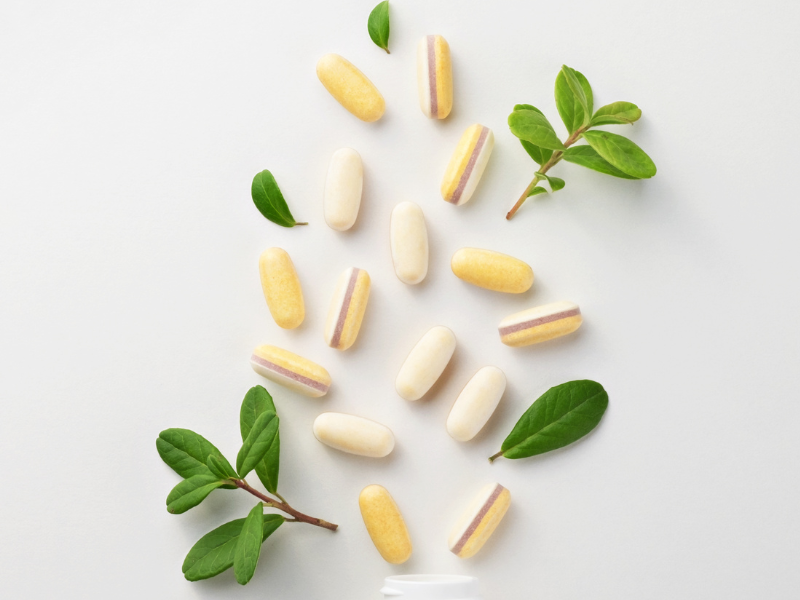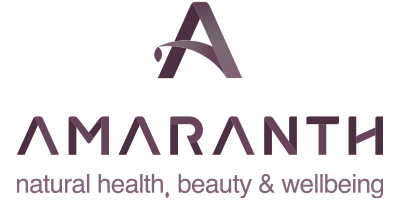All You Need to Know About NAD and NMN Supplements

If you’re interested in energy, cognitive function, healthy ageing or even longevity, you’ve probably come across NAD+, NADH and NMN. These compounds are at the heart of some of the most exciting research in nutritional science and cellular health — and questions about them have been coming in thick and fast.
In this article, I’ll take you through what NAD and its forms actually are, whether NAD or NADH supplements work, and why NMN has become a key player in this space. We’ll also cover food sources, how to approach supplements safely, and what to look out for in terms of quality.
Let’s start with the science.
What is NAD / NAD+ / NADH?
We’ve been asked about NAD and NADH a lot lately — so what exactly are they?
NAD stands for nicotinamide adenine dinucleotide. It refers to a group of coenzymes — helper molecules that play a vital role in the body’s ability to generate energy and regulate metabolism.
In simple terms, these coenzymes are involved in the transfer of electrons during cellular energy production. They work inside the mitochondria, the energy-producing structures in our cells. Without NAD, the mitochondria can’t properly convert the nutrients we eat into usable energy — which means less ATP (the body’s energy currency) and less cellular vitality.
Your body does produce NAD, but its production declines significantly with age.
The NAD Shuttle: NAD+ vs NADH
There are two key forms of NAD — NAD+ and NADH — and both are essential.
Here’s an analogy I like: Think of NAD+ and NADH as shuttle buses.
- NAD+ is the empty bus, ready to pick up an electron
- NADH is the full bus, carrying the electron to the mitochondria where energy is made
- Once the energy is released, NADH drops off the electron and converts back to NAD+ to start the process again
The more NAD+/NADH shuttles you have, the more efficiently your cells can produce energy. But when NAD levels drop with age, this system slows down — and cellular ageing begins.
Why NAD+ and NADH Matter
Because NAD is central to cellular function, it influences multiple areas of health:
- Energy production: NADH is essential for creating ATP — vital for energy, vitality and recovery
- DNA repair: NAD+ fuels enzymes that repair cellular damage
- Sirtuin activation: NAD+ activates sirtuins — proteins that support longevity, inflammation control and stress resistance
- Brain health: NAD+ may protect neurons, support mitochondrial function and reduce oxidative stress
- Anti-ageing: With roles in DNA repair and mitochondrial function, NAD+ is considered a key player in slowing the ageing process
Can You Take NAD+ or NADH as a Supplement?
NAD+ Supplements
From my research, I don’t believe NAD+ is suitable in oral supplement form. It’s not stable — and seems to be broken down by gut bacteria and liver enzymes before it can be absorbed. I haven’t found any reputable UK brands that offer it in supplement form, likely for this reason.
Intravenous NAD+ has gained popularity, but I personally feel cautious about IV nutrients unless there’s a clear medical reason. They bypass your digestive system entirely, which makes me question: If a nutrient can’t survive digestion, is it meant to be taken this way?
NADH Supplements
NADH is also unstable, but manufacturers have developed delivery methods that help protect it from digestive breakdown. There is some evidence of uptake in the body.
That said, I still have questions. If NADH is the “full bus,” could supplementing NADH alone cause an imbalance — with too many electrons and not enough empty NAD+ buses to take them? Since NAD+ levels decline with age, this could potentially create a backlog. Until more research is available, I personally wouldn’t recommend taking NAD+ or NADH as standalone supplements.
Can You Get NAD or NADH from Food?
You can’t really supplement NAD directly from food, but food can help support NAD production or provide building blocks.
- NADH is found in small amounts in the muscle tissue of fish, poultry, cattle and yeast-containing foods. Whether this form is efficiently used by the body is unclear.
- More importantly, food provides precursors your body uses to make NAD — such as niacin (vitamin B3). More on that shortly.
As always, I recommend a food-first approach, where possible. Nature tends to deliver nutrients in a form and balance that our bodies can use without disruption.
Enter NMN: The NAD Precursor That’s Gaining Ground
Now here’s where things get more exciting.
You’ve learned that NAD+ is essential, but hard to supplement directly. That’s where NMN (nicotinamide mononucleotide) comes in. It’s a precursor to NAD+ — meaning your body uses it to make more NAD+ naturally.
Does NMN Work?
Most of the recent studies into the benefits of NAD+ have actually been based on NMN and NR (nicotinamide riboside). While NR was researched earlier, newer studies are focusing on NMN — and the results are promising.
- NMN supplementation has been shown to raise blood NAD+ levels.
- A recent review concluded that NAD+ levels are associated with improved quality of life and functional outcomes, though the ideal dose varies greatly from person to person.
- Animal studies show improvements in metabolic health, physical performance and even lifespan extension.
- Human studies — though still emerging — suggest benefits in muscle insulin sensitivity and vascular function, particularly in older adults.
What the Research Shows
1. Cognitive Health
In mice, NMN supplementation improved working memory, gait coordination and neurovascular health.
2. Energy and Aerobic Capacity
A double-blind trial at Guangzhou Sport University found that 600mg–1200mg of NMN significantly improved oxygen uptake (VO₂), power and endurance in recreational runners.
3. Metabolic Health
In postmenopausal women with prediabetes, NMN improved skeletal muscle insulin sensitivity, suggesting benefits in blood sugar control and energy utilisation.
4. Anti-Ageing, Muscle & Vascular Health
Harvard Medical School researchers found NMN could counteract vascular ageing by activating SIRT1 and increasing NAD+. Other studies in older adults suggest improved muscle strength, walking speed and overall physical performance.
Food Sources of NMN
NMN is found in:
- Broccoli
- Cabbage
- Edamame
- Avocados
However, food sources provide less than 1mg per serving — far below the 250–900mg used in studies.
The body can also make NMN from niacin (vitamin B3). So a diet rich in niacin-containing foods may help:
- Meat, fish, eggs (richest sources)
- Peanuts, sunflower seeds, portobello mushrooms (plant-based options)
There’s no data yet on how to optimise this conversion — but it’s a potential area for future research.
NMN Supplements: What You Should Know
Dosage
Human trials range from 250 to 1200mg per day. Many people see benefits around 500–600mg, but response is highly individual. I wouldn’t recommend high doses of any single nutrient unless under professional guidance.
When to Take It
NAD+ levels fluctuate daily and tend to be higher in the morning, so taking NMN first thing may support its natural rhythm.
Some people take NMN on an empty stomach for better absorption, while others take it with food to reduce gastrointestinal discomfort.
Supplement Quality: Choose Wisely
This is where it gets tricky.
As a nutritional therapist, I only recommend brands with transparency, batch testing and GMP standards. Right now, NMN is mostly available from lesser-known brands, but these stand out:
- Kiki Health – 500mg powder capsules with no fillers
- LLN2 – Liposomal form (awaiting more data on absorption)
- Youth & Earth – Sublingual powder with GMP certification and third-party testing
I’m in ongoing conversations with these companies and will update this blog as I gather more data.
Which Form of NMN Is Best?
NMN is available in:
- Capsules
- Powders
- Liquids
- Sublingual tablets
- Liposomal liquids
There is some, albeit limited, evidence that liposomal (encapsulated in phospholipids to enhance absorption and stability) may offer the most superior absorption but more evidence is still needed on this.
Final Thoughts
We’ve covered a lot — so here’s a quick summary:
- NAD+ and NADH are vital for energy, brain health and longevity, but not easy to supplement directly
- NMN is a promising way to raise NAD+ naturally, with early studies showing benefits in cognition, energy and ageing
- Food-based NMN is limited, but niacin-rich diets may support production
- Supplement quality matters, and delivery form may influence how well NMN is absorbed
As always, what works for one person may not be right for another. If you’re curious about whether NMN or other NAD+ support strategies are a good fit for you, I’d love to help guide you.
